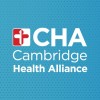Are you applying to the internship?
Job Description
About The University of Toledo
The University of Toledo is dedicated to attracting and retaining top talent and fostering a culture of respect. As an equal opportunity employer, the University does not discriminate in employment, educational programs, or activities based on race, color, religion, sex, age, ancestry, national origin, sexual orientation, gender identity and expression, military or veteran status, disability, familial status, or political affiliation.
To promote health and well-being, all University of Toledo campuses are tobacco-free. For positions at the University of Toledo Health Science Campus Medical Center, pre-employment health screenings, including drug screenings, are required. The University provides reasonable accommodation to individuals with disabilities for the application process, testing, or interviewing.
Job Description: Clinical Pharmacist – Internal Medicine/Investigational Drug Services
This is a full-time, salaried position (J1 classification) within the Pharmacy Department (Org: 110130), part of the Professional Staff Association bargaining unit. The primary location is HSC H (Health Science Campus Hospital), with a standard shift from 7:00 am to 3:30 pm. The posted salary will commensurate with education and experience. The role requires significant flexibility, as it involves floating, rotating shifts, being on-call, and working weekends/holidays. Travel is not required.
Core Responsibilities:
Clinical Pharmacists are responsible and accountable for the provision of safe, effective, and prompt medication therapy. Their duties involve:
• Supporting medication-use systems, both centralized and decentralized.
• Delivering optimal medication therapy to a diverse patient population with a broad range of disease states.
• Providing direct patient-centered care and integrated pharmacy operational services in a decentralized setting, collaborating closely with physicians, nurses, and other hospital personnel.
• Participating in all necessary aspects of the medication-use system.
• Providing comprehensive and individualized pharmaceutical care, which includes:
• Assessing patient needs.
• Incorporating age and disease-specific characteristics into drug therapy and patient education.
• Adjusting care based on patient response.
• Implementing clinical interventions to detect, mitigate, and prevent medication adverse events.
• Serving as departmental resources and liaisons to other departments, hospital personnel, or external groups.
• Conducting clinical research and practice advancement projects.
• Leading patient care quality and regulatory compliance initiatives aimed at improving medication-use processes or pharmacy practice.
• Providing medication and practice-related education/training.
• Actively serving as preceptors for Doctor of Pharmacy Students and pharmacy residents.
Minimum Qualifications:
• Possession of a Pharm.D degree from an ACPE-accredited College of Pharmacy.
• Formal clinical training is preferred, such as a PGY1 and/or PGY2 residency, fellowship, or three (3) years of applicable clinical practice (setting dependent on specialty).
• Must hold a current and unrestricted Ohio Pharmacist License.
• BLS and ACLS Certification are required.
• The position demands a flexible schedule due to the operational needs of physicians (e.g., medical rounds) and the department.
• Board certification in Pharmacotherapy or a specialty is required within 2 years of hire.
• Must meet ASHP preceptor qualifications within 12 months of hire.
Communication And Other Skills:
• Demonstrated experience in providing written and oral drug information with excellent communication skills.
• Ability to analyze data, interpret policies, procedures and regulations, develop appropriate conclusions, and prepare reports.
• Knowledge of contemporary hospital/clinical practice and service.
• Significant knowledge and expertise in advanced pharmacy practice, and specialty evidence-based medicine relevant to clinical assignments.
• Self-directed, motivated, and capable of leading supportive personnel.
• Proficiency in resolving conflicts and responding appropriately to complaints.
• Ability to work effectively with the public and other health professionals.
• Capable of training, evaluating, and supervising professional and technical personnel and staff.
• Demonstrates and utilizes effective interpersonal and culturally appropriate communications.



